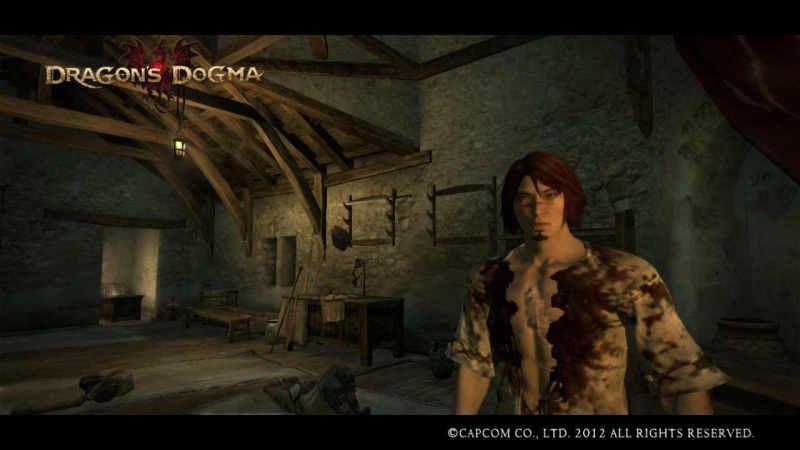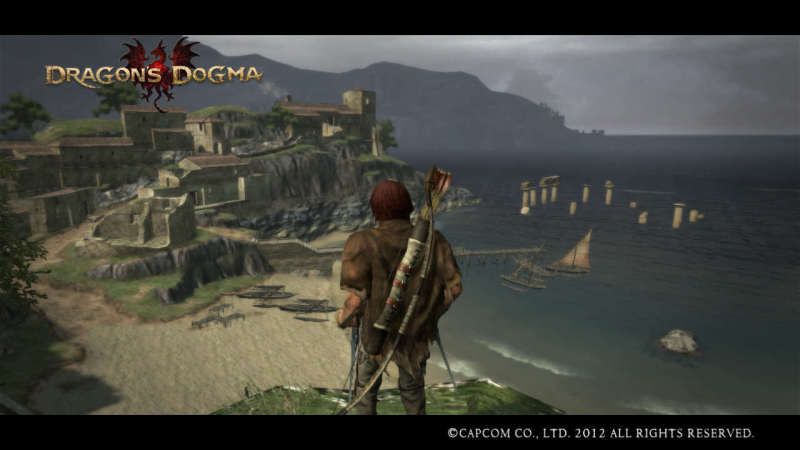That's the best reason I can think of TO play it.
Interesting (perhaps) thing about this. In another article today, Kotaku posted a compilation of reviews on Dragon's Dogma and one of the commenters called out the Joystiq review as being biased. Kotaku editor Luke Plunkett had the following gems to say on the matter:
Luke Plunkett said:
No, that's not what a review is at all. They're supposed to reflect the writer's personal experience and thoughts. There is 0% "journalism" in a review.
Luke Plunkett said:
Personally? They're a way for someone to tell someone else what they thought of something. Nothing more, nothing less.
When asked why he gets paid to review games, he said his "job isn't to review games" because reviews make up a small portion of the content he posts. Of course he completely ignored the intent of the question, which was "why does a major publication like Kotaku do game reviews if it believes them to be one person's opinion on a game, and doesn't strive to offer any critical analysis or provide the readers with the information needed to make their own judgement?"
When you tell your customer that your reviews are "just, like my opinion man," you are basically telling them that they are devoid of substance, and provide no value to a reader outside of "I wonder if Luke Plunkett liked this popular game." As a consumer of video games, and a sometimes reader of Kotaku, this does
absolutely nothing for me.
When I read a review, I don't particularly care about whether the reviewer liked the game; the only thing I care about is whether
I will like the game. Since the reviewer is just as unlikely to know my personal tastes as he is to share them, reviews should attempt to provide the reader with enough information to make a semi-informed decision about whether to purchase the game. Certainly I have bought more than a couple good games after reading negative reviews and thinking "those cons don't bother me at all, and some of them are actually pros in my opinion." I'm not saying reviews should be dry and merely informative, or that they should be devoid of bias and personal opinions. Obviously, the perspective of the person reviewing a game is going to be colored by whether they enjoyed the experience, and if a game does not seem to be enjoyable that should be communicated to the reader. Furthermore, I agree that a conclusion should be reached that states whether the game worked as a whole, or if it just fell flat.
But even as largely subjective pieces, reviews should tell the reader that "I did not enjoy the game because of features x and y, but there was some merit in feature z" and let the reader determine if the faults of the game outweigh the benefits. Reviews that state "this game is bad, play Skyrim instead" are of zero value. If Kotaku's goal is to provide me with merely opinions about a game, then I simply know to ignore reviews from that site.
Sorry, I know this reads like "Kotaku is dumb," but I'm trying not to be petty about this. Certainly this doesn't reflect on the rest of the content of the site, whatever your opinion on that may be (and as Plunkett said reviews do not make up the bulk of content on their site). Also, it should be noted that Plunkett is neither the author of the Dragon's Dogma review, nor is he the editor-in-chief of Kotaku. Still, his comments do tell you a bit about the attitude the site has towards reviews.







